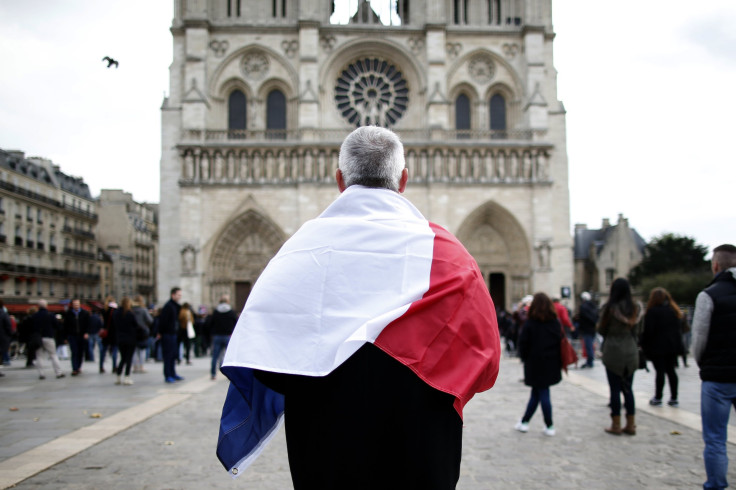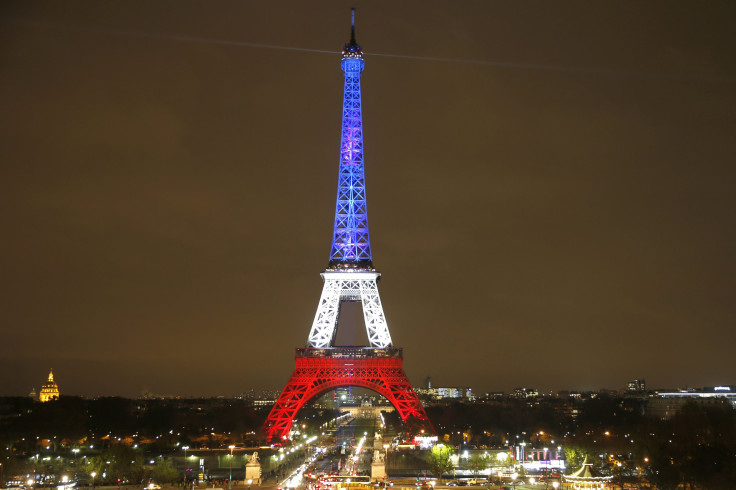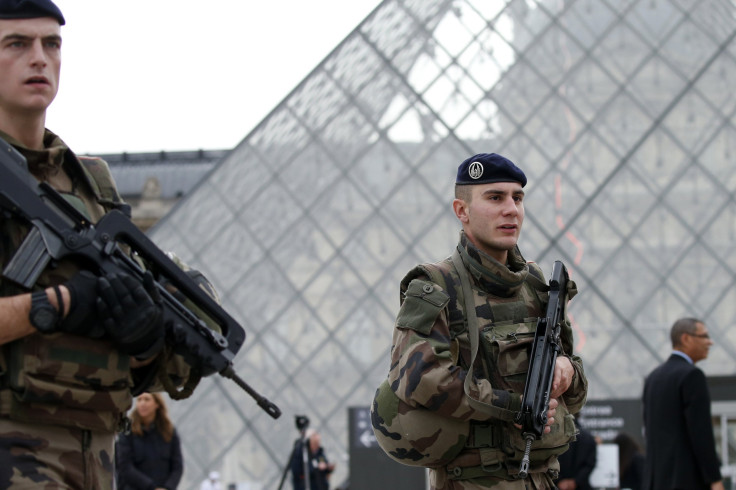France Tourism 2015: After ISIS Attacks Paris, Will The City Of Light Be Able To Recover?

Paris has for centuries been considered a top travel destination, boasting world-renowned museums, savory cuisine and famed landmarks. Howard Schultz romanticized about Parisian cafes when he created Starbucks, Ernest Hemingway dubbed the city a “moveable feast” in his memoir and movie star Audrey Hepburn famously stated that, “Paris is always a good idea.”
But after the French capital was enveloped in death and violence last week, tourists may become hesitant to travel to the iconic city. While experts in the tourism industry predicted that Paris will be able to rebound from an initial drop-off in visitors, airlines and local businesses will still likely take a hit from the inevitable “wait and see" period.
The City of Light, known for its flaky, fresh baguettes and glittering Eiffel Tower, brought in roughly 83 million foreign tourists last year, accounting for 7 percent of France’s GDP. Its tourist destinations, from the Louvre to the Notre Dame cathedral, attract honeymooners and foreign-exchange students alike.
Chaos ensued Friday when at least three teams of terrorists stormed six locations throughout Paris, ranging from bustling restaurants to a crowded concert venue. The deadly rampage resulted in at least 129 deaths, and the Islamic State group -- also known as ISIS or ISIL -- has claimed responsibility for the carnage.
For Paris, a city known as one of the world's safest tourist destinations, the violence marked the second incident of terrorism this year. After 12 people were killed during a fatal shooting at the Charles Hebdo magazine office in January, reservations for restaurants and bars experienced a cancellation rate of 68 percent. Nine days after the attack, revenues from the tourism industry dropped off 25 percent, and 10 days after they had further decreased 26 percent.
In the immediate aftermath of the gruesome attacks that unfolded Friday, a similar trend started to emerge. Low-cost airline Easyjet reported that less than 10 percent of its passengers scheduled to travel to and from Paris over the weekend did not show up, and shops and tourist attractions -- including Disneyland Paris, Chateau de Versailles and the Eiffel Tower --missed out on revenue after shuttering their doors in the wake of the attacks.
Buck Jones, owner of L’Imprevu Café in Le Marais district in Paris, said Friday's attack carried out by the Islamic State group would likely scare visitors off.
“After the January Charlie Hebdo attacks, we saw a slight slowing down of business, but this is entirely different because the Charlie Hebdo attacks seemed to be resolved fairly quickly,” Jones said. “Since Friday we’ve seen business drop very considerably. Saturday we only had 25 percent normal sales and Sunday was only at 33 percent.”
How quickly the tourism sector and the local Parisian economy will be able to recover likely hinges on whether there will be another terrorist attack, tourism officials said. After the London subway and bus bombings in July 2005, tourist visits to Britain actually rose 5 percent year-on-year in the third quarter, but there was still an initial fall in demand for travel.

“I don’t think it’ll have a long-term effect, but it’s quite natural that there will be a (short-term) effect because restaurants are shut down, concerts are not performing," said Nicholas Hall, the former executive director of the European Travel Commission and founder and CEO of the Digital Tourism Think Tank. “At the moment it’s such a fresh investigation, and it feels like the terrorists haven’t been fully caught.”
Elizabeth Harryman, travel editor of Westways magazine, said she felt comfortable enough to travel to Paris as early as tomorrow, and emphasized that people should not be afraid to travel because security will be tighter than ever. The attacks are definitely bad for the country’s tourism industry, Harryman acknowledged, noting that Paris hotel bookings were down 50 percent, but the timing of the attacks might not hurt the industry as much if they had occured during a busier season.
“After the Charlie Hebdo incident in January, travel to France dipped quite a bit, but then recovered after about two months. If a similar pattern holds true this time, a recovery in travel bookings to France would come after the first of the new year -- still typically time enough for travelers to get good deals on airfares,” Harryman said. “So, even if France takes a serious hit in the upcoming weeks, French tourism has a chance to recover in time for bookings for next summer’s peak travel season.”
Paris has also long been popular for foreign-exchange students, as high school and college students alike jet off overseas for adventure and academics. This could be one group of travelers, however, that might be more hesitant to travel to Paris after the attacks, especially if their parents have a say in it.
“I have been interacting with students today and many of them have expressed that their parents are very concerned about their safety during the exchange. A lot of students roll their eyes when telling me about their parents’ reactions, but there have also been a number of students who have expressed nervousness about the idea of traveling,” said Lindsey Evans, coordinator of the French Exchange Program at West Chicago Community High School in West Chicago, Illinois, which has a trip booked for March. “I think that if nothing further occurs in Europe, parents will start to relax a bit after the holidays. I think everyone needs a month or two of calm before people stop looking over their shoulders.”

The best way France can recover from Friday's terrorist attack is to spread the message that Paris is a safe place to travel to aggressively and authentically, Hall said. He pointed to South Africa, which saw a drop in tourism last year during an isolated Ebola outbreak in West Africa because of unwarranted concerns about the virus spreading across the continent.
“One of the biggest problems is fear," he said. "The best thing people Paris can do is tell its own story through its citizens and visitors through social media to show what the reality and safety of the destination is."
Ismat Sarah Mangla also contributed to this report.
© Copyright IBTimes 2024. All rights reserved.






















